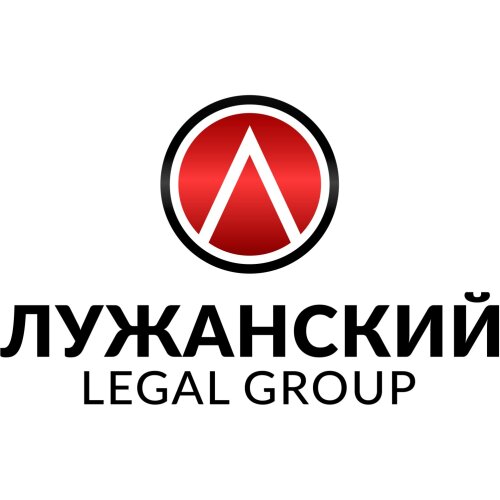Best Natural Resources Lawyers in Bishkek
Share your needs with us, get contacted by law firms.
Free. Takes 2 min.
List of the best lawyers in Bishkek, Kyrgyzstan
About Natural Resources Law in Bishkek, Kyrgyzstan
Bishkek, the capital city of Kyrgyzstan, is situated in a country rich with natural resources such as minerals, water, and forests. The management and regulation of these resources play a crucial role in the nation’s economic development and environmental sustainability. Natural Resources Law in Kyrgyzstan encompasses various aspects, including the extraction, utilization, and preservation of the environment and the resources it offers. With growing global and local demands on these resources, legal frameworks are essential in ensuring their sustainable use and protection.
Why You May Need a Lawyer
Individuals and businesses may require legal expertise in natural resources for numerous reasons. Common situations include contractual disputes over mining rights, compliance with environmental regulations, land use conflicts, and protection of indigenous and community rights. Legal assistance may also be necessary when dealing with issues related to water rights, forestry management, and navigating the bureaucratic processes for obtaining permits and licenses. A lawyer can provide critical guidance in protecting interests while ensuring compliance with the relevant laws and regulations.
Local Laws Overview
The legal framework governing natural resources in Bishkek and the broader Kyrgyzstan context includes numerous pivotal laws and regulations. Key legislative aspects include the Subsoil Law, which regulates mineral resources and mining activities, and the Forest Code, which manages forest use and conservation. The Water Code addresses water use and rights, while Environmental Protection laws ensure sustainable development and protection of the natural environment. These laws are subject to ongoing reforms as Kyrgyzstan seeks to align with international standards and address local challenges.
Frequently Asked Questions
What types of natural resources are found in Kyrgyzstan?
Kyrgyzstan is rich in minerals such as gold and uranium, as well as resources like water, forests, and fertile land for agriculture.
How is mining regulated in Kyrgyzstan?
The mining sector is governed by the Subsoil Law, which outlines the legal requirements for exploration and extraction, including obtaining necessary licenses and environmental compliance.
What is the role of environmental assessments in resource projects?
Environmental Impact Assessments (EIAs) are mandatory for projects that may have significant effects on the environment, ensuring that these impacts are considered before approval.
Who can claim water rights in Kyrgyzstan?
Water rights are predominantly governed by the Water Code, which provides frameworks for usage, distribution, and conflict resolution among different users such as agriculture and industry.
Are there any restrictions on foreign ownership in this sector?
Yes, foreign entities are subject to specific restrictions and requirements, particularly in sensitive areas like mining and land ownership.
What legal protections exist for indigenous communities regarding natural resource projects?
Kyrgyz law recognizes the rights of local communities, and consultation is often required for projects affecting indigenous lands and resources.
How can businesses ensure compliance with natural resource laws?
Compliance involves understanding the relevant laws and regulations, securing necessary permits, conducting EIAs, and engaging legal counsel for ongoing compliance management.
What are the penalties for non-compliance with natural resource laws?
Penalties can include fines, revocation of permits, and legal actions, depending on the severity of non-compliance.
Who enforces natural resource laws in Kyrgyzstan?
The State Committee for Industry, Energy, and Subsoil Use, along with other governmental bodies, is responsible for enforcing natural resource laws.
How does one address disputes over land and resource use?
Disputes can often be resolved through negotiation or mediation, though formal legal proceedings may be necessary in some cases, requiring legal representation.
Additional Resources
The following resources can provide valuable assistance for those dealing with natural resources in Kyrgyzstan:
- State Committee for Industry, Energy, and Subsoil Use - The main governmental body overseeing natural resources.
- Ministry of Agriculture, Food Industry and Melioration - Provides information on land and water resource management.
- Environment and Development NGOs - Often assist with environmental assessment and community rights.
- Local law firms specializing in natural resources - Offer tailored legal advice and representation.
Next Steps
If you need legal assistance in the field of natural resources, begin by clearly identifying your issue and desired outcome. Research and list potential legal firms that specialize in natural resources within Bishkek. Schedule consultations to discuss your case, understand the legal landscape, and explore potential legal strategies. Ensure to inquire about the lawyer’s experience in natural resources and their familiarity with the local legal framework. Lastly, keep abreast with any changes in the law that may affect your situation and maintain open communication with your legal counsel.
Lawzana helps you find the best lawyers and law firms in Bishkek through a curated and pre-screened list of qualified legal professionals. Our platform offers rankings and detailed profiles of attorneys and law firms, allowing you to compare based on practice areas, including Natural Resources, experience, and client feedback.
Each profile includes a description of the firm's areas of practice, client reviews, team members and partners, year of establishment, spoken languages, office locations, contact information, social media presence, and any published articles or resources. Most firms on our platform speak English and are experienced in both local and international legal matters.
Get a quote from top-rated law firms in Bishkek, Kyrgyzstan — quickly, securely, and without unnecessary hassle.
Disclaimer:
The information provided on this page is for general informational purposes only and does not constitute legal advice. While we strive to ensure the accuracy and relevance of the content, legal information may change over time, and interpretations of the law can vary. You should always consult with a qualified legal professional for advice specific to your situation.
We disclaim all liability for actions taken or not taken based on the content of this page. If you believe any information is incorrect or outdated, please contact us, and we will review and update it where appropriate.









